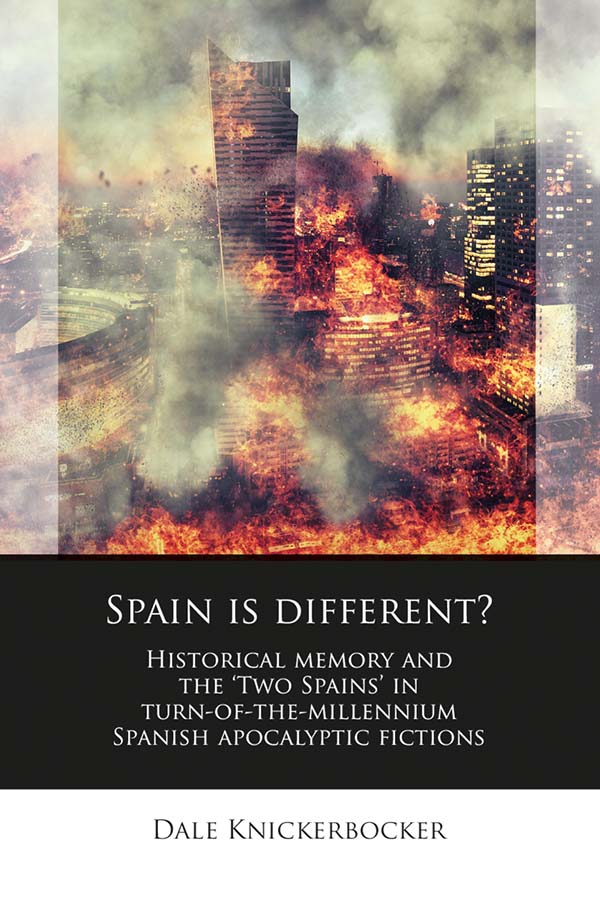Spain is different?
Historical memory and the ‘Two Spains’ in turn-of-the-millennium Spanish apocalyptic fictions
Awdur(on) Dale Knickerbocker
Iaith: Saesneg
Dosbarthiad(au): Literary Criticism
Cyfres: Iberian and Latin American Studies
- Rhagfyr 2021 · 288 tudalen ·216x138mm
- · Clawr Caled - 9781786838124
- · eLyfr - pdf - 9781786838131
- · eLyfr - epub - 9781786838148
Am y llyfr
The end of the second millennium witnessed an increase in science-fictional apocalyptic narratives globally. There is a noteworthy difference between such fictions from Latin America and the anglophone world and those from Spain, in which scientific explanations of events coexist with biblically-inspired plots, characters and imagery. This is the first book-length study of either science-fictional novels or apocalyptic literature in that country, analysing six such works between 1990 and 2005. Within a theoretical framework that includes critical and genre theories, archetypal criticism, and biblical scholarship, the book explains this phenomenon as a result of three historical factors: the ‘Two Spains’, Spanish ‘difference’, and the ‘Pact of Silence’, a tacit agreement that made justice and accountability impossible in the name of a peaceful transition to democracy. It repressed any processing of the historical trauma experienced during the Civil War and dictatorship, trauma that manifests itself symbolically in these fictions.
Dyfyniadau
‘This insightful study of the apocalyptic 1990–2005 SF novels by Montero, Negrete, Aguilera, del Barco, Vaquerizo, and the duo Pallarés and Garrigós, reveals how the Civil War traumas silenced by the democratic transition surfaced in a Spain not only “different” but also still hopelessly split between irreconcilable views of the nation.’
Dr Sara Martín, Universitat Autònoma de Barcelona
‘This fascinating book provides a refreshing perspective on the subject of Spanish historical memory and collective identity, and reveals the important role of apocalyptic stories. Brave, timely and accessible: Spain might or might not be different, after all, but the author opens up different angles on how Spain has (mis)handled its past.’
Dr Patricia García, Departamento de Filología, Comunicación y Documentación, Universidad de Alcalá
Cynnwys
Series Editors’ Foreword
Acknowledgements
Chapter 1. Introduction
Chapter 2. Apocalypse and apotheosis in Rosa Montero’s Temblor
Chapter 3. Apocalypse and alienation in Javier Negrete’s Nox perpetua
Chapter 4. The Mater of all apocalypses: Juan Miguel Aguilera’s La locura de Dios
Chapter 5. Enlightening the apocalypse: Enrique del Barco’s Punto Omega
Chapter 6. Born to kill: Eduardo Vaquerizo’s Mentes de noche y hielo
Chapter 7. ‘Fiery the angels rose’: José Miguel Pallarés and Amadeo Garrigós’s Tiempo prestado
Afterword
Works cited
Index


